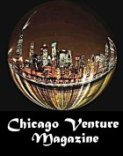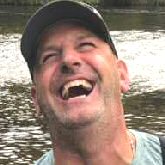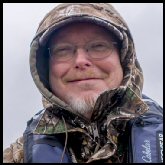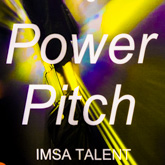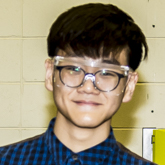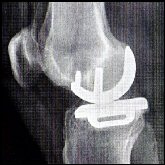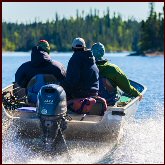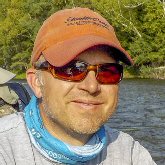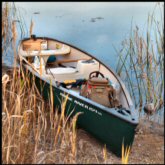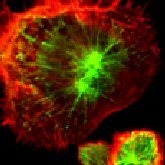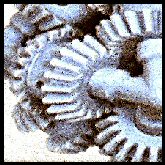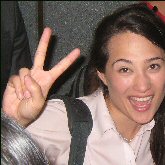 Techbash – Part 3
Techbash – Part 3
VERBATIM – John Jonelis
This is a story of high expectations, high reality, and high energy. I may as well give it to you straight, because Loop Lonogan would want it that way. He’s in the lockup. Too much hard partying on Twelfth Night. His guests spilled into the street and all kinds of trouble erupted—part of it involving a policeman he knocked cold. So I’m here at i.c.stars headquarters. Here to finish Lonagan’s series of articles. I’m talking to the president and co-founder, Sandee Kastrul.
The location—downtown Chicago. The workspace—all business. I start by throwing out this question: “Can I call i.c.stars a social incubator. Is that fair?”
Sandee bursts out in a smile. “I love it—I love it. It’s all about transformation. Technology is a tool of transformation.  We teach technology because it’s creative. It doesn’t know what you look like. At the end of the day you can be a rock star.
We teach technology because it’s creative. It doesn’t know what you look like. At the end of the day you can be a rock star.
“But what really gets us jazzed about technology is the systems thinking and the process that’s embedded in it. If you can take that and apply it to community leadership, to organizing, to service leaders, to entrepreneurship, we can literally make a change in the communities that we come from. And so we sit between the leadership and the technology side. Our vision is 1000 community leaders by 2020. So everything is about the leadership angle.”
This gal is for real and genuinely creative and intellectual. I’m going to enjoy this conversation.
Then she pauses and cocks her head. “Why was the TechBash event so special for Mr. Lonogan?”
High Expectations
“When Loop visited TechBash,” I say as I lean forward, hands clasped, “he met people that deeply impressed him. Everybody wants to give back—both interns and alums. They’re all wonderful evangelists for your program. He convinced me that you’ve really got something terrific going on here. I also think he feels a deep empathy with the people he met because, as you know, he grew up in a tough neighborhood—and he profited by it. Of course, with Loop we always have to consider the open bar.”
 Sandee laughs at that and I ask her to fill me in.
Sandee laughs at that and I ask her to fill me in.
“Reciprocity is one of our seven tenants.” she says. “It’s embedded in everything we do. Our model is all project-based learning. You spend a week doing team building, leadership training, trust exercises, cross-cultural communications, and then that Friday the team is divided up into three teams that form their own consulting companies and they’re literally competing with each other for their first bid on a project.”
Now I feel a grin coming on. That’s the kind of interactive hands-on education that I always loved and seldom experienced. I ask her if the project is a simulation.
“It’s kind of like The Apprentice meets Digital Boot Camp,” she says. “Leadership objectives are baked into their project. There are monkey wrenches all the way through, and those things are scripted, but the software they’re building is real, the requirements are real, it’s all very real.”
“How many of your people find work in their field in six months?”
“90% placement rate for our graduates—within six months probably 95-100%.”
That’s a significant statement. Amazing in any economic climate. So I ask her for the details.
“Four months of an intensive, twelve hour a day, project-based learning environment.”
“Homework?”
She comes right back.  “You do the work until it’s done. I always say the difference between school and work is: School is all about you and work is about everybody else. Sometimes they’ll be here till one in the morning working on deliverables.”
“You do the work until it’s done. I always say the difference between school and work is: School is all about you and work is about everybody else. Sometimes they’ll be here till one in the morning working on deliverables.”
“So twelve hours or even more.”
“Yes. It’s project-based learning. The student is in a meeting and client will say, Okay, we want you to build this mobile app.”
.
High Reality
“Corporate sponsors come in with real needs?”
“That’s right. And then the interns figure out how to do it. Then in the last hour, we have a subject matter expert who will come in on a parachute from the sky and help them over the last mile. And what’s important about that from a pedagogy standpoint is that you are learning how to learn—how to figure things out—how to learn quickly—and how to apply that information.  It’s not pre-teaching for later—it’s literally learn-for-the-month. What’s interesting is that our whole program is built on the premise that people who have overcome adversity have developed resiliency. And they wouldn’t be sitting at our table without it. Resiliency is the number one thing we’re looking for in our assessment process.”
It’s not pre-teaching for later—it’s literally learn-for-the-month. What’s interesting is that our whole program is built on the premise that people who have overcome adversity have developed resiliency. And they wouldn’t be sitting at our table without it. Resiliency is the number one thing we’re looking for in our assessment process.”
That makes so much sense to me. I know she’s right. Of course, not everybody thrives in such a setting and it takes strength of character. So I ask her where she finds her intern candidates.
“We recruit from all over. Most come from the South and West sides of Chicago.”
Consider the magnitude of what she’s saying. Those are some of the roughest neighborhoods in the country. So I relate to her what Lonagan described last night through the steel screen: “Some of the alums told Loop they felt helpless till they found i.c.stars. Angry. No expectations out of life. No hope. No reason to have any. But each of them somehow had the drive to try this program and somehow got accepted. Does that describe your students?”
“I think so. We’re looking for people who are fighting for something bigger than themselves. That and the resiliency piece.  So at some point, they faced adversity in their life and said, ‘I’ll show you. You’re not gonna tell me no.’ And it’s that fight—that resiliency—that develops this tool kit that has creativity, critical thinking, problem solving, all these things. We’re taking that toolkit and providing different context for them to learn. Our assumption is they already have all the raw materials. The project-based learning environment says, You already know—we’re just giving you this other context.”
So at some point, they faced adversity in their life and said, ‘I’ll show you. You’re not gonna tell me no.’ And it’s that fight—that resiliency—that develops this tool kit that has creativity, critical thinking, problem solving, all these things. We’re taking that toolkit and providing different context for them to learn. Our assumption is they already have all the raw materials. The project-based learning environment says, You already know—we’re just giving you this other context.”
.
High Energy
“But you train them first—before they go into a project?”
“A little bit. A week.”
I sit straight in my chair. A week? Who can do that? She must be describing the hottest recruiting ground in the world. “So they learn to program while doing?”
“Yes. We also have night classes. Experts come in and teach a concept.”
“Where do you find the experts to teach?”
She grins. “We have about a thousand volunteers plugged in. The training program manager handles that. A technical coach is on staff. It’s a busy place.”
She’s describing a training program on steroids. “How many recruits do you accept for a four-month internship?”
“We have capacity for 20 people at a time. We err on the smaller side.”
“I heard that you start with 3,000.”
“That is a very interesting statistic. The top of the funnel is about 400 people who are interested enough in i.c.stars to show the necessary commitment.  What happens in that pipeline is quite rigorous: Four phases of assessment tests. At each level, people drop off. They self-select out. They might say, ‘It’s a little too intense—I’m not ready yet.’ It’s not as if we’re kicking people out all the way through—they’re saying, ‘I’m not ready.’
What happens in that pipeline is quite rigorous: Four phases of assessment tests. At each level, people drop off. They self-select out. They might say, ‘It’s a little too intense—I’m not ready yet.’ It’s not as if we’re kicking people out all the way through—they’re saying, ‘I’m not ready.’
“The last leg is our panel interview. That really looks at resiliency. It is nothing more than seven existential questions in a panel setting. That interview has been THE greatest indicator of people’s success in the program. And on the job. And in the community. It really is looking at, ‘How do you see yourself in the world?’ Are you coming from a locus of control, like, ‘I’m a victim,’ or are you at, ‘This is what I want to do.’ Where do you sit? It’s very powerful. It’s like, ‘What are you gonna do about it?’”
 Then she abruptly stands. “High Tea is going to happen now. It’s something we do every day. We have a different business or community leader come to the table and share their story.” She ushers me in and gives me a seat. “You’re going to introduce the person to your left.”
Then she abruptly stands. “High Tea is going to happen now. It’s something we do every day. We have a different business or community leader come to the table and share their story.” She ushers me in and gives me a seat. “You’re going to introduce the person to your left.”
Introduce who—how? Suddenly I’m getting a small dose of what it means to learn while doing and it doesn’t feel comfortable at all.
.
GO TO PART 4 – HIGH TECH HIGH TEA
GO BACK TO PART 1 – TALENT HIDES
.
Contacts
i.c.stars – www.icstars.org
Sandee Kastrul – President & Co-founder – sKastrul@icstars.org
.
Chicago Venture Magazine is a publication of Nathaniel Press www.ChicagoVentureMagazine.com Comments and re-posts in full or in part are welcomed and encouraged if accompanied by attribution and a web link . This is not investment advice. We do not guarantee accuracy. It’s not our fault if you lose money.
.Copyright © 2014 John Jonelis – All Rights Reserved
.
.


